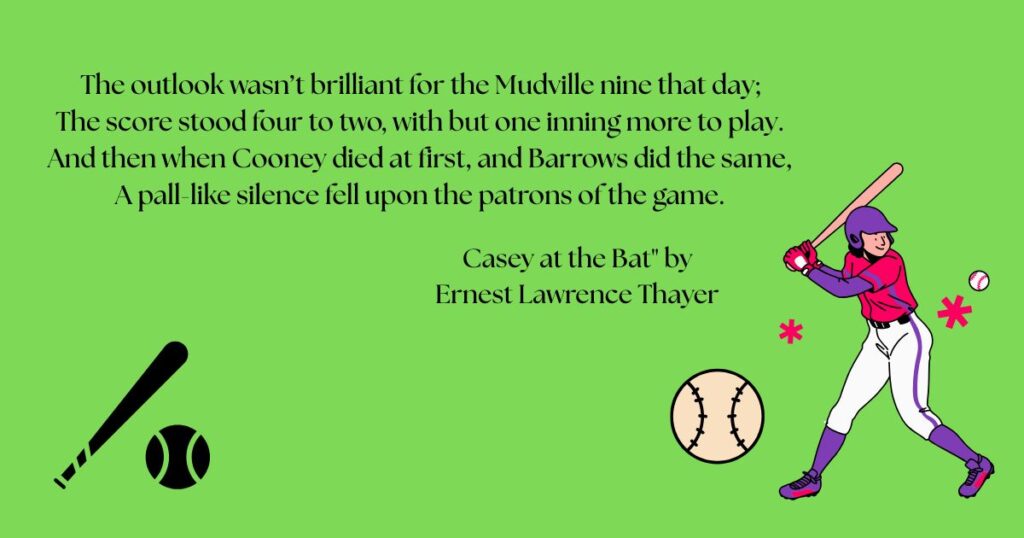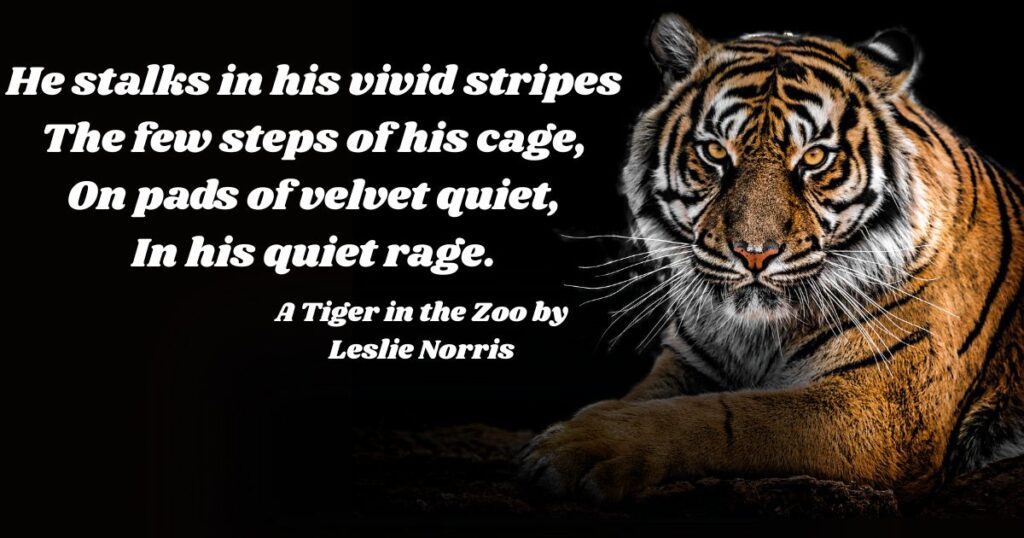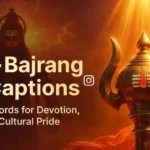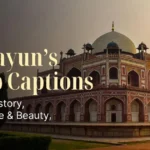English elocution poems for Class 7 represent the perfect bridge between childhood recitation and mature expression, offering seventh-graders the opportunity to develop confidence, articulation, and emotional depth through carefully selected verses.
These transformative pieces don’t merely teach pronunciation—they cultivate the art of public speaking while connecting students to rich literary traditions from both American and Indian cultures. When you witness a hesitant student transform into a confident speaker through poetry recitation, you’re observing the profound power of elocution in action.
“The Road Not Taken” by Robert Frost
Two roads diverged in a yellow wood,
And sorry I could not travel both
And be one traveler, long I stood
And looked down one as far as I could
To where it bent in the undergrowth;
Then took the other, as just as fair,
And having perhaps the better claim,
Because it was grassy and wanted wear;
Though as for that the passing there
Had worn them really about the same,
And both that morning equally lay
In leaves no step had trodden black.
Oh, I kept the first for another day!
Yet knowing how way leads on to way,
I doubted if I should ever come back.
I shall be telling this with a sigh
Somewhere ages and ages hence:
Two roads diverged in a wood, and I
I took the one less traveled by,
And that has made all the difference.
This quintessential American poem perfectly embodies the spirit of individual choice and personal responsibility that resonates deeply with students exploring their own paths in life.
“Where the Mind is Without Fear” by Rabindranath Tagore
Where the mind is without fear and the head is held high;
Where knowledge is free;
Where the world has not been broken up into fragments by narrow domestic walls;
Where words come out from the depth of truth;
Where tireless striving stretches its arms towards perfection;
Where the clear stream of reason has not lost its way into the dreary desert sand of dead habit;
Where the mind is led forward by thee into ever-widening thought and action—
Into that heaven of freedom, my Father, let my country awake.
Tagore’s visionary prayer for an enlightened India provides students with a powerful vehicle for expressing patriotic sentiment while developing sophisticated elocutionary techniques.
More Posts:Where Can I Publish My Poems / Your Poetry Published in 2025
“Casey at the Bat” by Ernest Lawrence Thayer

The outlook wasn’t brilliant for the Mudville nine that day;
The score stood four to two, with but one inning more to play.
And then when Cooney died at first, and Barrows did the same,
A pall-like silence fell upon the patrons of the game.
A straggling few got up to go in deep despair. The rest
Clung to the hope which springs eternal in the human breast;
They thought, “If only Casey could but get a whack at that—
We’d put up even money now, with Casey at the bat.”
But Flynn preceded Casey, as did also Jimmy Blake,
And the former was a lulu, while the latter was a cake;
So upon that stricken multitude grim melancholy sat,
For there seemed but little chance of Casey getting to the bat.
But Flynn let drive a single, to the wonderment of all,
And Blake, the much despised, tore the cover off the ball;
And when the dust had lifted, and men saw what had occurred,
There was Jimmy safe at second and Flynn a-hugging third.
Then from five thousand throats and more there rose a lusty yell;
It rumbled through the valley, it rattled in the dell;
It pounded on the mountain and recoiled upon the flat,
For Casey, mighty Casey, was advancing to the bat.
There was ease in Casey’s manner as he stepped into his place;
There was pride in Casey’s bearing and a smile lit Casey’s face.
And when, responding to the cheers, he lightly doffed his hat,
No stranger in the crowd could doubt ’twas Casey at the bat.
Ten thousand eyes were on him as he rubbed his hands with dirt;
Five thousand tongues applauded when he wiped them on his shirt;
Then while the writhing pitcher ground the ball into his hip,
Defiance flashed in Casey’s eye, a sneer curled Casey’s lip.
And now the leather-covered sphere came hurtling through the air,
And Casey stood a-watching it in haughty grandeur there.
Close by the sturdy batsman the ball unheeded sped—
“That ain’t my style,” said Casey. “Strike one!” the umpire said.
From the benches, black with people, there went up a muffled roar,
Like the beating of the storm-waves on a stern and distant shore;
“Kill him! Kill the umpire!” shouted someone on the stand;
And it’s likely they’d have killed him had not Casey raised his hand.
With a smile of Christian charity great Casey’s visage shone;
He stilled the rising tumult; he bade the game go on;
He signaled to the pitcher, and once more the dun sphere flew;
But Casey still ignored it, and the umpire said, “Strike two!”
“Fraud!” cried the maddened thousands, and echo answered “Fraud!”
But one scornful look from Casey and the audience was awed.
They saw his face grow stern and cold, they saw his muscles strain,
And they knew that Casey wouldn’t let that ball go by again.
The sneer is gone from Casey’s lip, his teeth are clenched in hate;
He pounds with cruel violence his bat upon the plate.
And now the pitcher holds the ball, and now he lets it go,
And now the air is shattered by the force of Casey’s blow.
Oh, somewhere in this favored land the sun is shining bright;
The band is playing somewhere, and somewhere hearts are light,
And somewhere men are laughing, and somewhere children shout;
But there is no joy in Mudville—mighty Casey has struck out.
This beloved sports narrative captures the drama of baseball while teaching students the art of storytelling through verse.
“The Peacock” by Sarojini Naidu
The peacock’s plumage is a shining veil,
Disclosed to woo, and flaunted to regale;
A shimmering web of amethyst and gold,
Encrusted with the sun, a sight untold.
A crest of sapphire crowns his haughty head,
His eyes are jewels, flame-lit, passion-fed;
His slender neck is arched with kingly pride,
His foot is tyranny, his voice is pride.
He trails a glory of emblazoned hues,
A living rainbow of celestial dews;
A breathing wonder, wrought in magic dyes,
A dream of beauty, stolen from the skies.
Naidu’s vivid imagery celebrates India’s national bird while providing students with rich descriptive language perfect for developing articulation skills.
More Posts:The 30+ Best Hindi Poems of All Time: A Journey Through India’s Literary Soul
“Paul Revere’s Ride” by Henry Wadsworth Longfellow
Listen, my children, and you shall hear
Of the midnight ride of Paul Revere,
On the eighteenth of April, in Seventy-five;
Hardly a man is now alive
Who remembers that famous day and year.
He said to his friend, “If the British march
By land or sea from the town to-night,
Hang a lantern aloft in the belfry arch
Of the North Church tower as a signal light,—
One, if by land, and two, if by sea;
And I on the opposite shore will be,
Ready to ride and spread the alarm
Through every Middlesex village and farm,
For the country folk to be up and to arm.”
Then he said, “Good night!” and with muffled oar
Silently rowed to the Charlestown shore,
Just as the moon rose over the bay,
Where swinging wide at her moorings lay
The Somerset, British man-of-war;
A phantom ship, with each mast and spar
Across the moon like a prison bar,
And a huge black hulk, that was magnified
By its own reflection in the tide.
Meanwhile, his friend, through alley and street,
Wanders and watches with eager ears,
Till in the silence around him he hears
The muster of men at the barrack door,
The sound of arms, and the tramp of feet,
And the measured tread of the grenadiers,
Marching down to their boats on the shore.
Then he climbed the tower of the Old North Church,
By the wooden stairs, with stealthy tread,
To the belfry-chamber overhead,
And startled the pigeons from their perch
On the sombre rafters, that round him made
Masses and moving shapes of shade,—
By the trembling ladder, steep and tall,
To the highest window in the wall,
Where he paused to listen and look down
A moment on the roofs of the town,
And the moonlight flowing over all.
Beneath, in the churchyard, lay the dead,
In their night-encampment on the hill,
Wrapped in silence so deep and still
That he could hear, like a sentinel’s tread,
The watchful night-wind, as it went
Creeping along from tent to tent,
And seeming to whisper, “All is well!”
A moment only he feels the spell
Of the place and the hour, and the secret dread
Of the lonely belfry and the dead;
For suddenly all his thoughts are bent
On a shadowy something far away,
Where the river widens to meet the bay,—
A line of black that bends and floats
On the rising tide, like a bridge of boats.
Meanwhile, impatient to mount and ride,
Booted and spurred, with a heavy stride
On the opposite shore walked Paul Revere.
Now he patted his horse’s side,
Now gazed at the landscape far and near,
Then, impetuous, stamped the earth,
And turned and tightened his saddle-girth;
But mostly he watched with eager search
The belfry-tower of the Old North Church,
As it rose above the graves on the hill,
Lonely and spectral and sombre and still.
And lo! as he looks, on the belfry’s height
A glimmer, and then a gleam of light!
He springs to the saddle, the bridle he turns,
But lingers and gazes, till full on his sight
A second lamp in the belfry burns!
A hurry of hoofs in a village street,
A shape in the moonlight, a bulk in the dark,
And beneath, from the pebbles, in passing, a spark
Struck out by a steed flying fearless and fleet:
That was all! And yet, through the gloom and the light,
The fate of a nation was riding that night;
And the spark struck out by that steed, in his flight,
Kindled the land into flame with its heat.
He has left the village and mounted the steep,
And beneath him, tranquil and broad and deep,
Is the Mystic, meeting the ocean tides;
And under the alders that skirt its edge,
Now soft on the sand, now loud on the ledge,
Is heard the tramp of his steed as he rides.
It was twelve by the village clock
When he crossed the bridge into Medford town.
He heard the crowing of the cock,
And the barking of the farmer’s dog,
And felt the damp of the river fog,
That rises after the sun goes down.
It was one by the village clock,
When he galloped into Lexington.
He saw the gilded weathercock
Swim in the moonlight as he passed,
And the meeting-house windows, blank and bare,
Gaze at him with a spectral glare,
As if they already stood aghast
At the bloody work they would look upon.
It was two by the village clock,
When he came to the bridge in Concord town.
He heard the bleating of the flock,
And the twitter of birds among the trees,
And felt the breath of the morning breeze
Blowing over the meadows brown.
And one was safe and asleep in his bed
Who at the bridge would be first to fall,
Who that day would be lying dead,
Pierced by a British musket-ball.
You know the rest. In the books you have read,
How the British Regulars fired and fled,—
How the farmers gave them ball for ball,
From behind each fence and farm-yard wall,
Chasing the red-coats down the lane,
Then crossing the fields to emerge again
Under the trees at the turn of the road,
And only pausing to fire and load.
So through the night rode Paul Revere;
And so through the night went his cry of alarm
To every Middlesex village and farm,—
A cry of defiance and not of fear,
A voice in the darkness, a knock at the door,
And a word that shall echo forevermore!
For, borne on the night-wind of the Past,
Through all our history, to the last,
In the hour of darkness and peril and need,
The people will waken and listen to hear
The hurrying hoof-beats of that steed,
And the midnight message of Paul Revere
This historical narrative transforms American Revolutionary War history into compelling performance poetry that captivates young audiences.
“A Tiger in Zoo” by Leslie Norris

He stalks in his vivid stripes
The few steps of his cage,
On pads of velvet quiet,
In his quiet rage.
He should be lurking in shadow,
Sliding through long grass
Near the water hole
Where plump deer pass.
He should be snarling around houses
At the jungle’s edge,
Baring his white fangs, his claws,
Terrorising the village!
But he’s locked in a concrete cell,
His strength behind bars,
Stalking the length of his cage,
Ignoring visitors.
He hears the last voice at night,
The patrolling cars,
And stares with his brilliant eyes
At the brilliant stars.
This contemporary piece explores themes of freedom and captivity while providing students with powerful contrast techniques for elocutionary development.
“Stopping by Woods on a Snowy Evening” by Robert Frost
Whose woods these are I think I know.
His house is in the village though;
He will not see me stopping here
To watch his woods fill up with snow.
My little horse must think it queer
To stop without a farmhouse near
Between the woods and frozen lake
The darkest evening of the year.
He gives his harness bells a shake
To ask if there is some mistake.
The only other sound’s the sweep
Of easy wind and downy flake.
The woods are lovely, dark and deep,
But I have promises to keep,
And miles to go before I sleep,
And miles to go before I sleep.
Frost’s contemplative masterpiece teaches students the art of quiet reflection and understated emotional expression through deceptively simple verse.
“The Lamp” by Nissim Ezekiel
Standing alone in silence,
The lamp burns in the night.
It has no other purpose
Than burning, giving light.
The darkness is around it,
The darkness everywhere,
But nothing can extinguish
The lamp’s small steady glare.
The lamp is not ambitious,
It does not seek to shine
Beyond its little corner,
Its circle of design.
It burns because it must,
Because it has no choice.
It burns without a question,
Without a human voice.
And yet its light is holy,
A miracle of flame,
A little living wonder
Without a creed or name.
Ezekiel’s modern verse connects traditional imagery with contemporary expression, perfect for developing interpretive elocution skills.
“The Village Blacksmith” by Henry Wadsworth Longfellow

Under a spreading chestnut-tree
The village smithy stands;
The smith, a mighty man is he,
With large and sinewy hands;
And the muscles of his brawny arms
Are strong as iron bands.
His hair is crisp, and black, and long,
His face is like the tan;
His brow is wet with honest sweat,
He earns whate’er he can,
And looks the whole world in the face,
For he owes not any man.
Week in, week out, from morn till night,
You can hear his bellows blow;
You can hear him swing his heavy sledge,
With measured beat and slow,
Like a sexton ringing the village bell,
When the evening sun is low.
And children coming home from school
Look in at the open door;
They love to see the flaming forge,
And hear the bellows roar,
And catch the burning sparks that fly
Like chaff from a threshing-floor.
He goes on Sunday to the church,
And sits among his boys;
He hears the parson pray and preach,
He hears his daughter’s voice,
Singing in the village choir,
And it makes his heart rejoice.
It sounds to him like her mother’s voice,
Singing in Paradise!
He needs must think of her once more,
How in the grave she lies;
And with his hard, rough hand he wipes
A tear out of his eyes.
Toiling,—rejoicing,—sorrowing,
Onward through life he goes;
Each morning sees some task begin,
Each evening sees it close;
Something attempted, something done,
Has earned a night’s repose.
Thanks, thanks to thee, my worthy friend,
For the lesson thou hast taught!
Thus at the flaming forge of life
Our fortunes must be wrought;
Thus on its sounding anvil shaped
Each burning deed and thought!
This character portrait celebrates American work ethic while providing students with rich descriptive language and narrative structure for elocutionary development.
More Posts:25+ Heartfelt Birthday Poems for Daughter from Mother
“Geography Lesson” by Zulfikar Ghose
Our teacher told us one day he would leave
And sail across a warm blue sea
To places he had only known from maps,
And all his life had longed to be.
The house he lived in was narrow and grey
But in his mind’s eye he could see
Sweet-scented jasmine clinging to the walls,
And green leaves burning on an orange tree.
He spoke of the lands he longed to visit,
Where it was never drab or cold.
I couldn’t understand why he never left,
And shook with anger when he grew old.
We knew he had no proper family:
It was said a woman he had loved
When young had left him for another man,
And he had never again removed
Her picture from his mantelpiece. Some said
His heart was broken. But he stayed
In that same house, and when at last he died,
The neighbours came to watch it razed.
And found, inside his old wooden desk,
A book of maps, its pages worn,
With certain areas marked in red
Where he had never been, though he was born
In one of them. And as I grew, I learned
How his life had been imprisoned so,
And recognized the same bars round me
Though I was living where I longed to go
This contemporary perspective poem challenges students to explore modern themes while developing analytical elocution techniques.
“I Hear America Singing” by Walt Whitman
I hear America singing, the varied carols I hear,
Those of mechanics, each one singing his as it should be blithe and strong,
The carpenter singing his as he measures his plank or beam,
The mason singing his as he makes ready for work, or leaves off work,
The boatman singing what belongs to him in his boat, the deckhand singing on the steamboat deck,
The shoemaker singing as he sits on his bench, the hatter singing as he stands,
The wood-cutter’s song, the ploughboy’s on his way in the morning, or at noon intermission or at sundown,
The delicious singing of the mother, or of the young wife at work, or of the girl sewing or washing,
Each singing what belongs to him or her and to none else,
The day what belongs to the day—at night the party of young fellows, robust, friendly,
Singing with open mouths their strong melodious songs.
Whitman’s democratic celebration provides students with opportunities for ensemble performance while exploring American diversity and national identity.
“The Kite” by Harry Behn

How bright on the blue
Is a kite when it’s new!
With a dive and a dip
It snaps its tail
Then soars like a ship
With only a sail
As over tides
Of wind it rides,
Climbs to the crest
Of a gust and pulls,
Then seems to rest
As wind falls.
When string goes slack
You wind it back
And run until
A new breeze blows
And its wings fill
And up it goes!
How bright on the blue
Is a kite when it’s new!
But a raggeder thing
You never will see
When it flaps on a string
In the top of a tree.
This childhood nostalgia poem connects students with universal experiences while providing excellent practice in imagery-rich elocution.
More Posts:Easy Hindi Poems for Class 5
Conclusion
These twelve carefully selected English elocution poems for Class 7 students represent a journey through both American and Indian literary traditions, offering young speakers the tools to develop confidence, articulation, and emotional expression through the transformative power of poetry. Whether reciting Frost’s contemplative verses or Tagore’s visionary prayers, students discover that elocution poetry serves as a bridge between academic learning and personal growth, building the communication skills that will serve them throughout their educational journey and beyond. Through consistent practice with these diverse verses, seventh-graders transform from hesitant speakers into confident communicators, ready to share their voices with the world.

Admin of https://aspirenowa.com/. Sharing Touching and Thoughtful Poems for all Hearts. I Believe in Simple Words, Deep Meaning, and Inspiring Emotions through Poetry for Every Reader.










